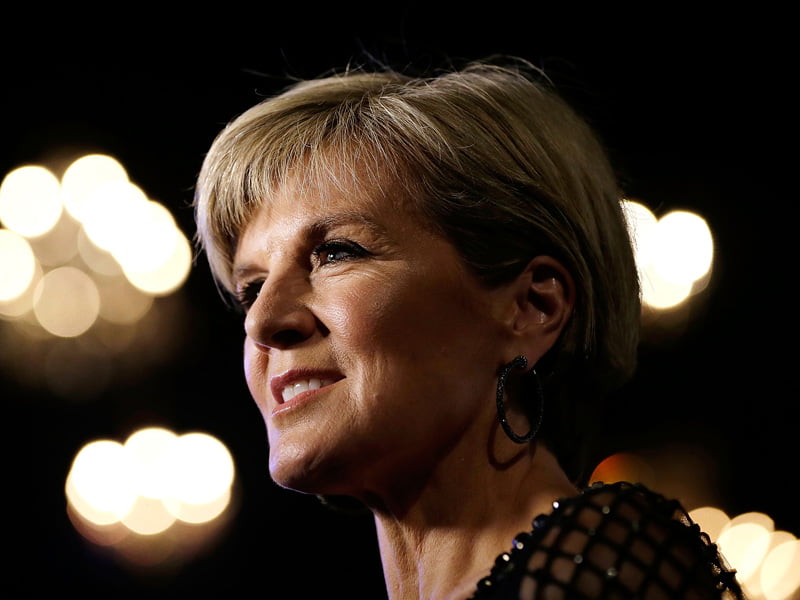Companies looking to sell innovative services on the world stage will remain heavily reliant on bilateral trade deals for the foreseeable future with international agreements on trade in services still a way off, and the future of the Trans Pacific Partnership clouded ahead of the US election.
Country by country “economic diplomacy” has been a central tenet of Julie Bishop’s foreign ministry, and that seems unlikely to shift in the run up to the election – or in the case of a Government switch to Labor come July.
But for innovative service businesses, the wheels of economic diplomacy grind slowly – and access to many regional markets remains challenging.

Australia’s telecommunications, computer and information services trade continues to rise, and although there is still a services trade deficit it is narrowing. According to the Department of Foreign Affairs and Trade’s most recent services report, in 2014-15 exports in this category rose 35.8 per cent to $2.7 billion. Imports grew more slowly, by 11.8 per cent to $3.1 billion.
Australia has adopted a technologically neutral approach to trade policy with regard to the digital economy and has argued that electronic commerce should be no more restricted than non-electronic trade in goods.
In the most recent free trade agreements (FTAs) such as those negotiated with the US and China, trade in services has been explicitly tackled, delivering more clarity.
Services trade is also a key focus of the Trans Pacific Partnership (TPP) which is intended to encourage free flow of data across borders for service suppliers and investors as part of their business activities. Signed in February, the TPP cannot come into force until it is ratified by the 12 countries party to the arrangement, or if that hasn’t happened within two years, by at least six countries representing 85 per cent of the GDP of the bloc.
With both Hillary Clinton and Donald Trump both vowing to veto the deal, it remains moot as to whether that particular piece of economic diplomacy will ever materialise.
Meanwhile there seems little hope that the World Trade Organisation will ever get its act together on services, leaving the Trade in Services Agreement (TISA) as the last hope for a multilateral agreement on services trade.
TISA negotiations grind on – though there is hope some clarity will emerge toward the end of the year – but this agreement focusses on the US, Europe, Japan, some South American countries and Japan where services trade is generally not too restrictive in any case.
Scott Bouvier, an IP partner with an innovation focus at international law firm King & Wood Mallesons, said that in spite of the multi-nation trade discussions, bilateral FTAs offered greater flexibility in terms of what could be included with regard to trade in services.
He held out little hope that the WTO would offer any services clarity. “With 100 plus countries it’s almost impossible for the WTO to agree on anything,” he said.
Instead “The more services access our bilateral agreements can get us the better,” and particularly agreements with countries with currently restrictive trade frameworks. India he said was an example of a country where a bilateral free trade agreement could have huge implications for Australian services businesses.
The China Australia FTA had, Mr Bouvier said, done a “huge amount in the services area” and delivered more clarity about opportunities for Australian innovators. He acknowledged however that there had been some issues and noted that “a lot of China ecommerce is bumpy at the moment.”
In April China introduced e-commerce legislation which cracked down on which products bought online would be granted preferential tax treatment. Government sources suggest however that this applies only to physical goods sold directly to consumers on accredited websites via bonded warehouses in 13 Chinese cities and as such should have little impact on most Australian service providers.
But it serves to illustrate the ongoing challenge that service exporters face. What is needed to ensure Australia can ascend through the ranks as a globally competitive “innovation nation” is certainty with regard to international trade opportunities.
Tien Tzuo is the founder and CEO of Zuora, a US based software company that supports “subscription economy” – or services businesses. Locally its software manages Fairfax Media’s digital subscriptions and tracks subscriber engagement, and underpins Servcorp’s virtual office services.
Mr Tzuo attended a G20 meeting in Antalya, Turkey last year as part of the innovation summit and says that trade in services was a key agenda item. (The next major G20 meeting will be held in China in September, and again services trade will feature).
He said that most legacy trade agreements still assumed a transfer of physical goods which was less relevant to innovative, services led economies.
“Tariffs are all associated with products when the world is more about car sharing.”
He said trade policy had yet to catch onto the services issue fully, and also warned that Governments had not properly grappled with the issue of the flow of ideas and business models across borders that was part of the services economy, and the implications that had in terms of local employment and education requirement.
“There are a whole set of parallel trade issues that affect governments with respect to the subscription economy,” said Mr Tzuo. “Governments not thinking seriously about this could be seriously disadvantaged five to ten years from now.
“In the future it will be less about manufacturing and more about importing a business model.”
Ian Bertram, Gartner managing vice president noted that Australia was not alone in its services trade challenge. “I don’t know that anyone’s got this right yet – we are still fumbling around in the dark.”
It was compounded he said by the complexities of international law. “This is much more complex. If it’s local you can hold someone’s feet to the fire. It’s much harder to hold someone’s feet to the fire when they are in Israel.”
Do you know more? Contact James Riley via Email.

